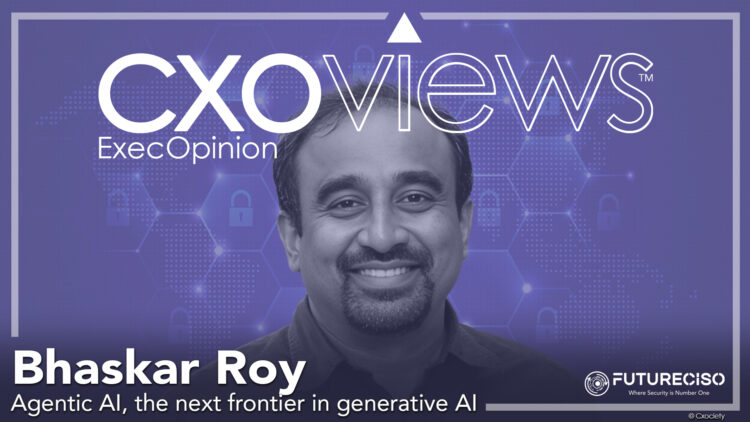IBM describes Agentic AI as a system that can autonomously perform tasks on behalf of a user or another system by designing its workflow and using available tools.
IBM writer Cole Stryker explains that "the system has "agency" to make decisions, take actions, solve complex problems, and interact with external environments beyond the data upon which the system's machine learning (ML) models were trained."
For Subhendu Pattnaik, principal analyst at Forrester, Agentic AI represents the next frontier in generative AI.
He says granting AI systems greater autonomy in decision-making can transform business operations and create opportunities for innovation and productivity by streamlining routine tasks and enhancing efficiency.
Pattnaik adds that agentic AI "provides a pathway to achieving more ambitious AI goals. By implementing autonomous AI systems across various marketing subfunctions and teams, organisations can foster innovation, improve decision-making, boost efficiency, and increase overall autonomy, propelling them to new heights in the rapidly evolving world of AI-driven marketing."
Enhancing operational efficiency

Bhaskar Roy, chief of AI Products & Solutions at Workato, posits that Agentic AI can significantly enhance operational efficiency and employee productivity by acting as digital twins of employees.
According to Roy, agentic AI has various use cases, including orchestrating software deployment and updates with human approvals, resolving customer issues using natural language in IT, streamlining onboarding processes, and boosting employee experience in HR. In sales, agentic AI can orchestrate the lead-to-close process with knowledge about businesses' sales methodology, processes, and motions.
"These agents, when equipped with the knowledge of specific industry processes and best practices, with the ability to take actions and orchestrate workflows, can significantly improve employee productivity and overall business outcomes," he said.
He describes agentic AI as "domain experts capable of understanding company processes and roles to retrieve relevant information, take action on various systems autonomously, and orchestrate business processes dynamically with human approvals as needed."
He adds that these agents also have reasoning, data-driven decision-making, and collaboration capabilities to execute complex, cross-functional processes.
Agentic AI adoption
With the growing list of perks and advantages of agentic AI, Roy lists three things to drive agentic AI adoption in organisations: knowledge bases that AI Agents can use to retrieve relevant information, an enterprise integration platform to connect to various applications and data sources, and robust data security and governance to ensure that people have access to only the data that they should have access to.
Roy also said it is vital to consider the people, processes, and technology when adopting autonomous AI systems.
Leadership's alignment with AI initiatives is crucial for successful Agentic AI implementation. A cross-functional team, comprising AI experts and business domain experts, should be formed to supervise AI initiatives across the organisation. This ensures that the entire organisation is on board with the AI transformation.
According to Roy, investing in change management is essential when adopting autonomous AI systems. Providing employee training and support is crucial to enable staff to work alongside AI agents and best leverage them. This ensures that the workforce is equipped with the necessary skills to work effectively with AI.
When it comes to process, Roy recommends organisations have a clear strategy outlining the deployment of AI agents to achieve the organisation's goals and implement data governance to ensure data quality, privacy, and compliance.
"Review existing processes to identify where AI agents can automate tasks or processes. Ensure these processes are re-engineered with AI and human oversight where necessary to maximise impact and mitigate risks," Roy adds.
Regarding technology, Roy positsthat AI agents must be able to integrate with various systems through an enterprise integration platform. He also highlighted the importance of security, governance, and future-proofing AI agents to accommodate an organisation's growth and evolution.
Addressing concerns
Roy acknowledged that concerns surrounding the onboarding of AI agents are understandable because they are still relatively new.
According to Roy, one main concern is the risk of losing control and the unpredictability of responses, which a skill-based approach can reduce. This approach involves giving AI agents specific deterministic skills.
"There should be clear guardrails to ensure that an AI agent executes only the skills that it has."
"There should be clear guardrails to ensure that an AI agent executes only the skills that it has," said Roy.
Organisations can mitigate bias and fairness issues through robust data management and audit practices to ensure data quality.
Employees are also concerned about job displacements, which can be mitigated through training on leveraging AI agents for productivity and efficiency.
"Effective data management and human understanding of organisational frameworks are essential soft skills needed to facilitate AI programs and exact approval for AI actions. By proactively addressing these concerns, organisations can ensure greater AI benefits for their workers and society," he said.
Roy said organisations should deploy security and governance frameworks, monitor, and respond to issues surrounding security vulnerabilities, such as cyberattacks or data breaches.
Roy added that "having humans in the loop, especially in complex and high-stakes environments where AI agents might encounter unfamiliar situations," can minimise such risks.
Long-term impact
"The goal of agentic AI is largely to streamline workflows and improve workforce efficiency. By automating repetitive tasks, autonomous AI can free up employees' time for innovation and business development, enabling organisations to upskill their teams," said Roy.
He said that the right AI and human collaboration can lead to more effective business operations and a greater demand for technical skills such as data science, which can be part of integrating AI solutions' onboarding and facilitation processes.
"Organisations that embrace AI and adapt to changing technologies can expect to stay ahead of their competition, be it in terms of efficiency or innovation."
"Ultimately, the long-term impact of agentic AI on workforce dynamics can be transformative, influencing the nature of work. This transformative power of AI agents will vary based on various factors, including technological advancements, government policies, and societal attitudes. However, organisations that embrace AI and adapt to changing technologies can expect to stay ahead of their competition, be it in terms of efficiency or innovation," Roy concluded.




